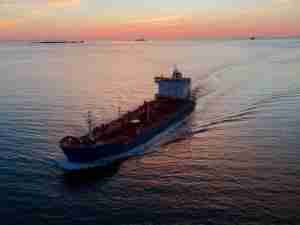Bush, Canadian Prime Minister Stephen Harper and Mexican President Felipe Calderon are expected to unveil an initiative to avoid crippling delays in border crossings in the event of a terrorist attack, natural disaster or epidemic such as Avian flu.
The Quebec summit of the North American leaders risked being overshadowed by the hurricane that recently smashed into Mexico's Caribbean coast.
Not long after he arrived for what has been dubbed the "Three Amigos summit," Calderon announced he was cutting his trip to Canada short to deal with fallout from Hurricane Dean.
The storm hit Mexico's Caribbean coast as the strongest Category 5 hurricane, then lost some of its power over land and was downgraded to a Category 3 storm. But forecasters warned that roaring winds and rains were still a major threat.
Bush told Calderon the United States was willing to help. Calderon canceled plans to spend time with Harper in Quebec on Wednesday and then attend a business lunch in Toronto.
The summit at a chateau by the Ottawa River got under way amid demonstrations by protesters who shouted for Bush to go home and objected to the aim of boosting trade and working on a common approach against terrorism.
A group of activists camped out overnight in Montebello, and another band of protesters left Ottawa early on Tuesday by canoe hoping to get close to the summit site by water. About 25 police boats patrolled the river.
Critics expressed concern that broadening economic ties would erode national sovereignty and that closer cooperation on anti-terrorism could lead to human rights abuses.
DON'T APPEAR TOO CLOSE
But both Harper and Calderon are interested in furthering the trade relationship, although neither wants to appear too close to Bush, who is unpopular in both of their countries.
Bush came into office in 2001 pledging to focus on strengthening ties with Mexico but critics say he has neglected the concerns of his neighbors in the aftermath of the Sept. 11 attacks.
Mexico is frustrated by increasingly tough US border policies and by the collapse in Congress of a push to overhaul US immigration laws.
Canada is irked that anti-terrorism measures have hampered the flow of goods and services across the border.
Harper discussed Canada's concerns about Russia's symbolic laying of claim to the North Pole, where it placed a flag on the seabed. Canada claims it has sovereignty over the Northwest Passage of the Arctic, but the United States views it as an international strait.
Stephen Clarkson, professor of international economy at the University of Toronto, said the Northwest Passage issue allows Harper -- accused by opposition politicians of being a Bush prot'g' -- to show some disagreement with the US leader.
"It's a very safe issue for Harper to bring up because it allows him to sound a nationalist theme," Clarkson said.
On Afghanistan, where Canada has 2,600 troops, Harper appears to have resigned himself to pulling out the troops by February 2009 since opposition parties, which have more seats in parliament than Harper's Conservatives, oppose an extension. (Reuters)








